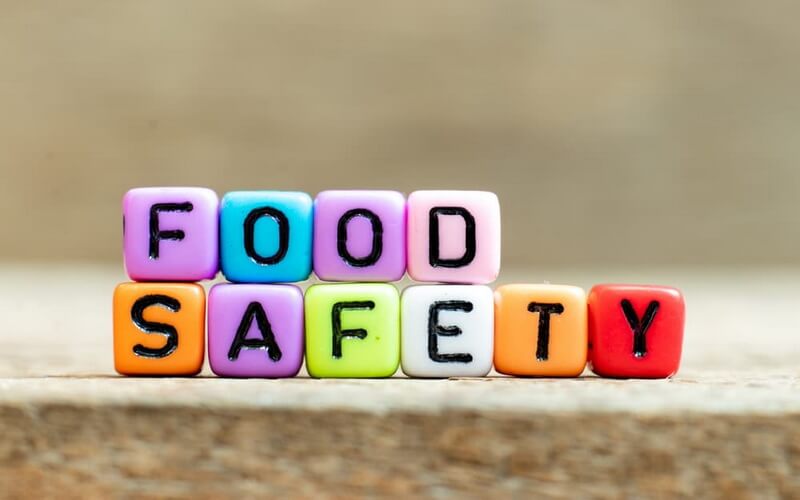Vital Facts About Food Safety
Food safety refers to the condition where food is non-toxic, harmless, meets the required nutritional standards, and does not cause any acute, subacute, or chronic harm to human health.
Every year, food-borne bacteria cause tens of millions of episodes of intestinal disease. Most healthy persons experience brief bouts of nausea, stomach cramps, and diarrhea. However, among persons with weaker immune systems, such as those suffering from AIDS, symptoms are frequently severe, and infections are so difficult to cure that they can be fatal.
Salmonella germs are usually found in raw milk, raw poultry, meat, and eggs. This bacteria is found in up to 40% of marketed raw chickens. Salmonella enters the diet through cross-contamination from raw poultry to other foods during storage or preparation.
Listeria bacteria can be found in raw milk, cold-smoked salmon, and certain cheeses, especially soft-ripened versions like Brie and Camembert. Listeria may live in vegetables and, once chopped, can encourage its growth.

Uncooked animal-derived meals such as steak tartar, sushi, raw oysters, Hollandaise sauce, homemade mayonnaise, eggnog, or ice cream should not be consumed at home.
Unsanitary food handling or eating raw or undercooked shellfish taken from contaminated waterways can both spread Hepatitis A.
Simple care in food selection and preparation can greatly reduce the risk of infection from contaminated food. Any uncooked animal-derived food must be regarded as tainted with pathogenic bacteria. A high-risk person should never consume unpasteurized milk, raw or undercooked eggs, poultry, fish, shellfish, or meat.
Check the cleanliness of the meat and seafood counters, as well as the salad bar. Cooked shrimp, for example, could be contaminated if they are stored on the same ice as raw fish. Only purchase Grade A or superior eggs. Eggs that are fractured or oozing should be avoided. Buy no foods with a "sell by" or "best used by" date that has passed. Check the label to verify if the food contains raw or undercooked animal products.
Put raw seafood, poultry, and meat in plastic bags to prevent drippings from contaminating other goods in the cart or bag. Bring groceries home and refrigerate cold foods. Hot meals from the deli should be consumed immediately, kept hotter than 60 degrees Celsius (140 degrees Fahrenheit), or refrigerated. Even a few hours of unrefrigerated food promotes bacterial development. Keep eggs in their original cartons in the refrigerator's main area. Put them in the egg part of the door since the temperature is higher there.
Hands, utensils, worktops, and cutting surfaces should all be washed with hot soapy (ideally biodegradable) water after handling raw eggs, meat, poultry, or fish. To avoid cross-contamination, it was used often during meal preparation. Instead of using hardwood cutting boards, which are difficult or impossible to clean properly, use plastic or glass cutting boards. After grinding raw meat or poultry or blending eggs or vegetables, disassemble and thoroughly clean the meat grinder and blender.
After cutting up meals, such as vegetables, refrigerate or cook them as soon as possible. Bacteria can grow at temperatures above 4°C (40°F) and below 60°C (140°F), hence food safety is dependent on temperature. Cook beef and lamb to a minimum of 60°C (140°F), pork to a minimum of 66°C (150°F), and poultry to a minimum of 74°C (165°F). Follow the seafood recipe, but don't undercook it. Mussels and snails that have been lightly steamed should be avoided. When cut, fish should be flaky, not rubbery. Never consume raw clams, oysters on the half shell, sushi, or sashimi. Cook the eggs thoroughly until the yolk and white are firm and not runny.
To avoid cross-contamination, store leftovers in closed containers in the refrigerator. Divide hot items into small parts for speedy cooling, and leave space around containers for circulation to keep the refrigerator or freezer temperature from rising. If food appears or smells suspect, discard it or compost it for use as garden fertilizer.